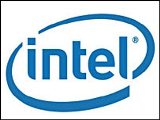FTC claims Intel has 'stifled innovation'
Anti-competitive tactics worked against AMD and Nvidia

Sign up for breaking news, reviews, opinion, top tech deals, and more.
You are now subscribed
Your newsletter sign-up was successful
The U.S. Federal Trade Commission sued Intel this week, claiming that the world's largest chip manufacturer has abused its dominant market position to stifle competition.
The FTC is also examining Intel's actions in the market for graphics processors, with that news boosting Nvidia's shares more than 8% in mid-week trading.
Graphics market hampered
The FTC's latest suit follows the recent anti-trust suit brought by Intel's rival AMD last month which resulted in Intel paying AMD $1.25 billion in cash.
The FTC claims Intel has set up a system of "threats and rewards" aimed at personal computer and server manufacturers such as Dell, Hewlett Packard and IBM.
"Intel has engaged in a deliberate campaign to hamstring competitive threats to its monopoly," Richard A. Feinstein, director of the FTC's Bureau of Competition, said in a statement. "It's been running roughshod over the principles of fair play and the laws protecting competition on the merits."
The FTC also claims that Intel is competing unfairly in the market for graphics processors.
Sign up for breaking news, reviews, opinion, top tech deals, and more.
"As part of this latest campaign, Intel misled and deceived potential competitors in order to protect its monopoly," the FTC said in a statement. "The complaint alleges that there also is a dangerous probability that Intel's unfair methods of competition could allow it to extend its monopoly into the GPU chip markets."
The FTC wants Intel to stop using "threats, bundled prices, or other offers to encourage exclusive deals, hamper competition, or unfairly manipulate the prices of its CPU or GPU chips."
Via Forbes.com
